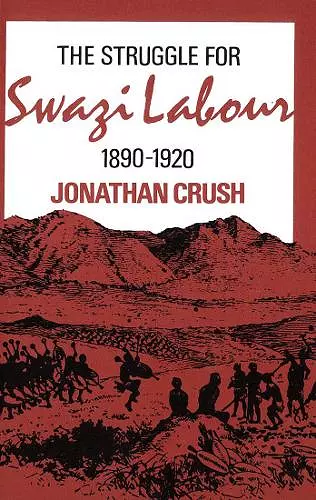The Struggle for Swazi Labour, 1890-1920
Format:Hardback
Publisher:McGill-Queen's University Press
Published:1st Nov '87
Currently unavailable, our supplier has not provided us a restock date

Although the results of colonial expansion have been described in other general studies of the region, this is the first book to take a close look at the case of the Swazi in Swaziland. Jonathan Crush shows that while the Swazi experienced many of the classic problems of underdevelopment, there were also a number of significant differences. For example, traditional relationships between chiefs and commoners showed much greater resilience than elsewhere. This considerably affected the pace and nature of Swaziland's incorporation into South Africa's notorious migrant labour system. As well, because of the country's proximity to a number of alternative labour markets, the Swazi had a greater choice of employment than did many other groups in the region. Crush shows how the Swazi were able to use the system to their own advantage and how this helped shape the patterns of early Swazi migrancy. The Struggle for Swazi Labour examines the changing nature of the Swazi migrant labour force, the spatial patterns and temporal rhythms of migration, and the emergence of the Witwatersrand as the dominant, though by no means exclusive, employer of Swazi labour. It also shows how the local history of white settlement and land alienation influenced the manner in which the Swazi were subordinated to foreign economic and political control. The book fills an important gap in the history of Swaziland and in the economic history of the south African region as a whole. It will be helpful to anyone wishing to understand the pre-eminence of traditional personalities and institutions in contemporary Swaziland, and to those seeking an explanation for South African economic domination of the surrounding countries. Its comparative perspective makes it valuable to a wide range of scholars with interests in the social and economic development of southern Africa, as well as to labour and social historians, rural economists, and economic geographers.
"Crush is the first scholar to my knowledge to have approached the early period of colonial rule in Swaziland from the perspective of capital and labour using the new insights of modern scholarship in this field. His study will have to be taken into account by any future historian concerned with understanding the place of labour in South African history." Leonard Guelke, Waterloo University.
ISBN: 9780773505698
Dimensions: unknown
Weight: 576g
320 pages